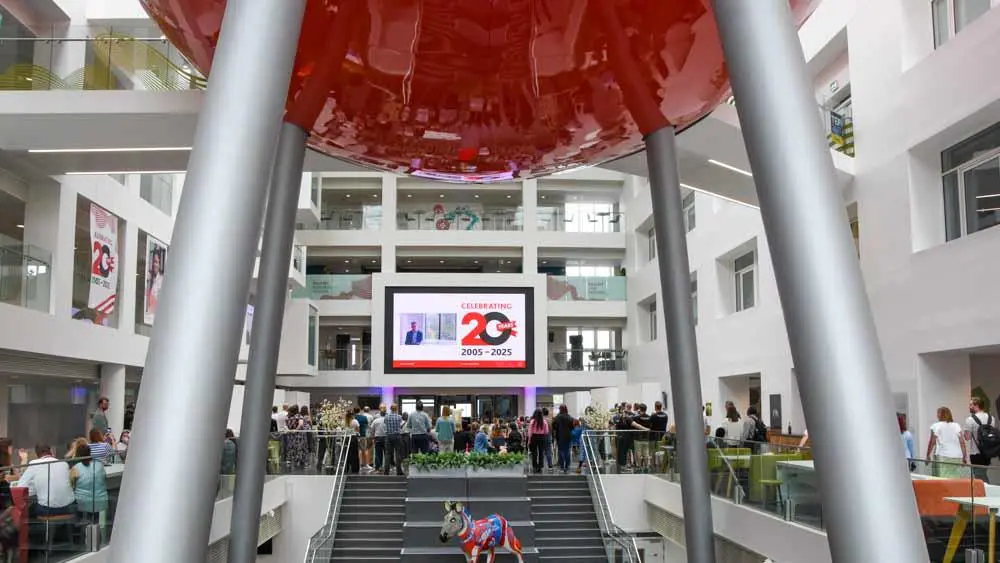
Southampton Solent University climbs 22 places in Times University Guide 2026
Southampton Solent climbs 22 places in the Times rankings, a week after jumping 28 places in the Guardian rankings
19 September 2025
29 September 2020
Adapting our teaching and learning provision was key to Solent continuing to provide an excellent learning experience during the Covid-19 pandemic. This case study highlights the work done by the SLTI team in building the Transformation Academy.
Like many economies and businesses feeling the impact of Covid-19, as a university we had to learn and adapt quickly to the changing environment and transition teaching to a virtual learning environment. By shifting our business model and working with academic colleagues, we were able to provide students with a positive learning experience and ensure that this did not fall victim to the Covid-19 pandemic.
In August, Professor Karen Heard-Lauréote, Dr Carina Buckley and Roger Emery from the Solent Learning and Teaching Institute (SLTI) held a live webinar where they discussed Solent’s Transformation Academy and the learning around the specific education and technology elements of our transition to fully online learning.
The Transformation Academy project has been a huge collaborative effort with over 75 staff working together from the across the University in developing this project. As well as this, Transformation Academy champions were recruited to build a community of staff to share their experiences and ideas that support other colleagues from across the University.
As a university, we strive to provide an excellent student learning experience for all. Building on the work already being undertaken at Solent, the Transformation Academy contributes a structure and support mechanism for staff to take them through the process of transitioning their current virtual learning environment pages into an immersive and rich online learning experience for all students. We want to keep students at the centre of what we do and that has been critical in the direction that we took with the Transformation Academy, with our priority being to maintain our standards, not just in teaching as we have been, but also to ensure we maintain our standards in inclusivity and equity at Solent.
The Covid-19 pandemic was a catalyst for quickly progressing the work already underway at Solent in developing Solent’s Virtual Learning Environment. The Solent Baseline, introduced in 2016, prioritised community and collaboration, providing students opportunities to work together with peers and independently. The goal was to provide a rich, immersive and interactive learning experience that reached beyond the classroom and that focused on what students were learning and how, rather than necessarily where, extending the classroom beyond the space to help both staff and students.
This has since been surpassed by the SOL Standard, applicable to all courses whether online, face to face or somewhere in between. It adds specific emphases on accessible design, scheduled interactivity, formative deadlines and peer learning to the original Baseline, and strengthens the concept of students tracking their progress within a broader learning community.
Above all, we saw this as an opportunity to rethink how we ‘do’ learning and teaching at Solent, by encouraging staff to see that the principles of social constructivism they use in their classroom teaching apply just as much to the online space.
With any new technology and new environment, it was important that staff and students felt supported with adapting to this new way of learning and working. One way in which we did this was through a virtual help desk, answering any questions queries they may have around using different technologies and software. As well as this, teams built a number of new support sites and communities to support staff and students, such as the ‘Learning Technologies Induction’ and ‘Learning at a Distance’ which was targeted at students who are learning at a distance for the first time.
